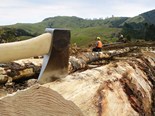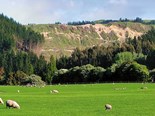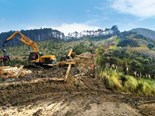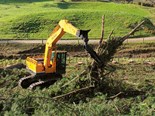Do you log your own wood?
Deals on Wheels writer Patrick Cox takes a look at best options to maximise optimum return for your wood
With many farm blocks now reaching maturity, what is your best option to maximise optimum return for your wood?
Twenty-five years ago, if you were the one who busted your backside planting your trees on marginal-to-steep country, putting long-term plans in place to get some sort of return off the land, why would you not consider doing it yourself?
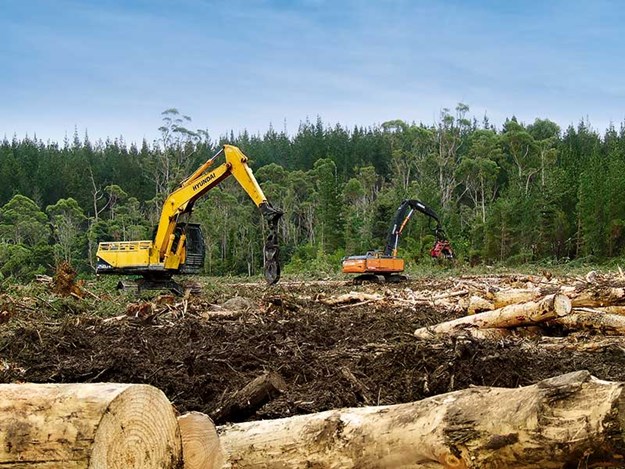
My guess is that no one told you about infrastructure costs to harvest the timber and what that would entail. Before you even get the first tree on the ground, a comprehensive work safe and environmental plan would be where you should start. Following this a pre-harvest plan, harvest plan, roads and landings and a post-harvest plan for when the logging is completed.
Also take into consideration the size of your plantation and carbon credits to be paid back to Ministry of Primary Industries. Or do you replant to avoid paying your carbon credit debt?
Roading would have to be the biggest cost; do you develop all-weather roads or do you restrict your logging to the summer months only? When you start looking at the bigger picture, it’s better to get an experienced company to come in and do the lot for you.
So, now you’re faced with another dilemma; who’s reputable and who isn’t? Shop around; go online. All the wood buyers are there and the price you will receive will depend on log prices at the port, while your distance from the port will determine freight costs.
Wood buyers have their own harvesting crews; experienced loggers who can save you money by operating with safe harvesting and efficient logging with high-quality staff who don’t make a big mess and will leave your farm in a tidy state.
Don’t fall into the trap of trying to harvest your trees too young. There are overseas buyers out there running around with pockets full of cash buying trees as young as 18-years old. At this age are you getting true value for your trees. But if you’re not desperate, wait until they are 25- to 30-years old. The time you wait for the trees to reach maturity will also give you a better return for your product.
There are those who will choose to do their own; one farmer I know did exactly that. He planted his trees and when it came time to harvest, he stepped up to the mark, doing an excellent job, employing experienced loggers and hiring a couple of machines (as he had no intention of logging after he had finished his own wood). He stopped work through the winter months and saved on roading. Apart from a couple of hic-ups the job went well. All he has to do now is replant to stay carbon neutral and avoid paying back carbon credits to MPI.
In another instance, a contractor had a small block of pines he wanted to get rid of; probably not enough to get any sort of real return and he just wanted them gone; no carbon credits involved. So, a logging contractor was engaged to remove them at no cost to the land owner. This could be considered a good deal; the trees were removed, the logging contractor was remunerated by recovering the wood and there was minimal mess left behind.
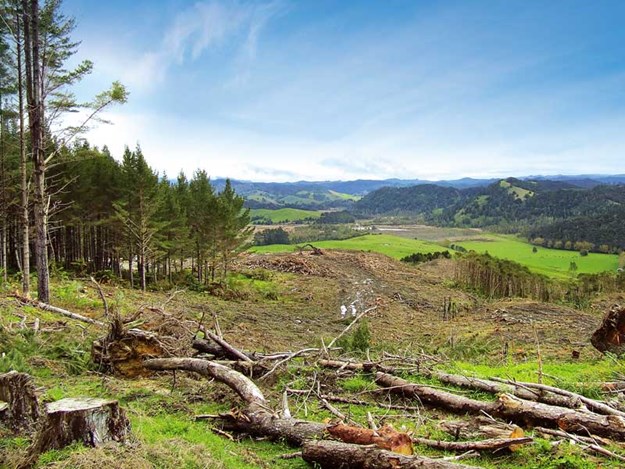 |
|
Don’t fall into the trap of trying to harvest your trees too young
|
I have also come across a new land owner who purchased a block of land with a sizable block of trees on it.
The land owner went to log buyers but when he found out the total worth and what his share would be, he decided he would log it himself. Unfortunately this turned into a total disaster. If you’re going to be a one-off logger and you purchase equipment just for your job, how can you compete with a logging contractor who has infrastructure in place to continue to go from job to job?
This harvesting operation went from one disaster to another. The council shut him down over environmental issues. Capital expenditure was huge with new utes and machinery purchased, but the job wasn’t big enough to sustain this capital outlay unless more blocks could be acquired.
Unfortunately this didn’t happen. The land owner was essentially shut down by inexperience and the inability to hire qualified loggers to do the job. In the end, a log buyer contractor finished the harvest. The land owner finished with a damaged ego and a pretty empty cheque book.
If you’re faced with this decision, here are a few things you should consider: do you have enough practical experience and qualifications to undertake a logging operation? Can you hire experienced loggers to do the job and guarantee they will go home safe every night?
Can you meet all the environmental and compliance costs to keep you out of court should an accident occur? Worksafe shows no mercy and with fines being handed out in the hundred of thousands of dollars, this is where common-sense should prevail. Pick up the phone and call in the professionals.
The reality is, logging is not for the faint hearted. Loggers are well-trained today after years of input from loggers who have contributed their knowledge to put in place training mechanisms that help produce loggers who are productive, but work safe and look after their mates.
For the farm forester, make sure you plan ahead, as the industry will continue to grow faster than we can find new people to train. There is the very real possibility you might have to wait some years to get your wood harvested. If your wood will be ready in five years, book a wood buyer now. Prices can always be negotiated at harvest time.
If your wood lot is your retirement fund, then it makes sense to plan ahead rather than be disappointed.
Keep up to date in the industry by signing up to Deals on Wheels' free newsletter or liking us on Facebook.












